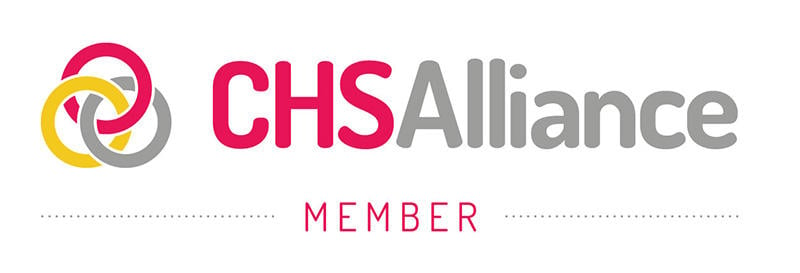
Speak Up policy
Speak Up is NRC's whistleblowing system for reporting suspected misconduct or other concerns. Read more and make an anonymous report here.
Open information policy
NRC is committed to being accountable to all stakeholders. We ensure that the details on how we work, and where our funds go, are accessible and visible.
It is important for us to be open and transparent towards the displaced people we assist, our staff, the host authorities where we work, the donors supporting our work – and the general public.
That's why we have adopted an open information policy, outlining what information we share and how. We strive towards the highest standards of openness.
In the cases where we do not disclose information, it is based on well-founded reasons such as the safety and privacy of stakeholders, or our ability to deliver aid.
Read our open information policy.
Transparency
In addition to our own initiative striving towards increased transparency, we also have certain commitments as stipulated in the Strategic Partnership Agreement with the Norwegian Ministry of Foreign Affairs (NMFA).
Our Anti-corruption work
What is corruption?
NRC defines corruption as the abuse of power for illegitimate individual or group benefits. Corruption might occur in many forms, including but not limited to bribery, kickbacks, theft, embezzlement, extortion, favouritism, fraud, unnecessary waste and sexual exploitation.
NRC's anti-corruption stand
NRC takes a firm position against corruption in any form, and actively works to prevent, avoid and detect all forms of corruption. NRC employees must commit to a zero tolerance and are not allowed to provide for, request or receive anything that can be defined as corruption.
How to report corruption?
NRC staff who becomes aware of possible corruption within or in connection to NRC is instructed to report these violations immediately.
International Aid Transparency Initiative (IATI)
NRC is a signatory of the International Aid Transparency Initiative (IATI), which aims to make information about international aid easier to find, use and understand. NRC publishes information through IATI on a quarterly basis.
Read more about our IATI reporting.
Learning
We promote continuous learning from our experiences, to adapt and evolve our programmes to what works.
Our guidelines for learning are:
- Learning is participatory, involving different people, teams, and activities.
- We can learn from all experiences, including successes and failures.
- We are open and transparent about our learning process.
- Learning is the responsibility of all of our staff. We therefore create a culture and space for reflection and learning.
In order to learn, we must collect information from how well our programmes do. We do this through monitoring and evaluation, which includes tracking benchmarks, quality assessments, and evaluations.
Once information is collected, we then apply lessons to programme design and start-up, strategy development, and other planning. We use the lessons to support decision-making later on.
Equality and Non-Discrimination Work
To achieve NRC’s mission, a diverse and capable workforce is our most important asset. We work systematically to build a positive working culture in which all staff feel valued and supported and have a sense of belonging.
NRC works actively for equality and non-discrimination, promoting equal opportunities regardless of gender, age, race, ethnicity, religion, disability, sexual orientation and gender identity. Read more about the status of our equality and non-discrimination work.
Conflict of Interest Policy
The NRC Conflict of Interest Policy applies not only to NRC employees and Board Members, but also to suppliers and consultants whom NRC works with.
All of NRC’s stakeholders, including project participants, donors and partners, must have trust and confidence in the professionalism, integrity and honesty of the suppliers and consultants NRC works with. Part of this involves identifying a potential conflict of interest and disclosing it to NRC, so it can be assessed and managed.
Read our Conflict of Interest Policy.


